You brush your teeth every day, but are you doing it correctly? What else can you do to ensure that your teeth stay healthy and clean? In this article, we explore the best ways to keep your teeth healthy – from brushing properly to using the right kind of toothpaste.
Don't forget to
brush your teeth before bed
It’s important to
brush your teeth before bedtime. This removes any plaque and bacteria that have
built up during the day. It also helps to prevent bad breath.
Don't forget to clean
your tongue
Your tongue is
home to millions of bacteria. In fact, studies have shown that the tongue can
be home to more bacteria than any other part of the mouth! While most of these
bacteria are harmless, some can cause bad breath and tooth decay. That’s why
it’s important to keep your tongue clean. Find more related content here
The best way to
clean your tongue is to use a tongue scraper. Tongue scrapers are specifically
designed to remove bacteria and food debris from the tongue. They’re easy to
use and they can make a big difference in your oral health.
If you don’t have
a tongue scraper, you can also use your toothbrush to clean your tongue. Just
make sure to use a soft-bristled brush and avoid scrubbing too hard, as this
can irritate the delicate tissue of the tongue.
Floss each day
It's important to
floss daily to remove plaque and bacteria from between your teeth and gums.
Plaque is a sticky film of food debris, bacteria, and saliva. If plaque isn't
removed, it can harden and turn into tartar (calculus), which can cause gum
disease.
To floss properly, use about 18 inches (45.7 cm) of floss. Wrap most of the floss around your middle finger, leaving an inch or so to work with. Gently insert the floss between your teeth using a back-and-forth motion. Be careful not to snap the floss into your gums. Use a clean section of floss for each tooth by unspooling more from your fingers as you go. When you're done flossing, throw away the used floss. Find more related content here All Things You Must Need To Know About Dental Veneers.
Utilize the best toothpaste
There are a lot
of different kinds of toothpaste on the market, so it can be hard to know which one to
choose. However, when it comes to choosing toothpaste for your teeth, it is
important to choose one that contains fluoride. Fluoride is a mineral that
helps to protect your teeth from decay. It is also important to choose toothpaste
that has been approved by the American Dental Association (ADA). This means
that the toothpaste has been tested and proven effective at cleaning
teeth and preventing cavities.
Employ mouthwash
Most people think
that brushing their teeth twice a day is enough to keep their pearly whites
healthy and sparkling. However, even if you brush and floss regularly, bacteria
can still build up in your mouth, which can lead to gum disease and other
dental problems.
That’s where
mouthwash comes in. Mouthwash can help remove plaque and bacteria that brushing
and flossing can’t reach. It’s an important part of any oral care routine.
There are many
different types of mouthwashes on the market, so choosing one that’s right for you is important. If you have sensitive teeth, look for a mouthwash that is
alcohol-free. If you are prone to cavities, choose a mouthwash that contains
fluoride.
Whatever type of
mouthwash you choose, be sure to use it as directed. Swish the mouthwash around
your mouth for 30 seconds before spitting it out. For best results, use
mouthwash twice a day, after brushing and flossing your teeth.
Stop smoking
If you're a
smoker, the best thing you can do for your teeth is to quit. Smoking stained my
teeth, caused me to have bad breath, and made me more susceptible to gum
disease. I was able to quit smoking with the help of nicotine gum and by
finding other things to do with my hands, like knitting.
Drink more water
We all know that
water is important for our overall health and fitness, but did you know that it’s also
essential for keeping your teeth healthy? Drinking plenty of water helps to
rinse away food and bacteria that can lead to tooth decay and gum disease. It’s
also important to stay hydrated so that your saliva can do its job of protecting
your teeth. So make sure you drink plenty of water throughout the day!
Eat wholesome,
crunchy foods
When it comes to
keeping your teeth healthy what you eat matters. A diet rich in sugary and
acidic foods can break down tooth enamel, leading to cavities. To help prevent
cavities, eat plenty of crunchy fruits and vegetables. These foods help
increase saliva flow, which helps neutralize the acids that can damage teeth.
Keep hydrated
In addition to being beneficial to
your general health, enough hydration also supports healthy saliva production.
Saliva aids in dental health by transporting food particles through your mouth,
preventing most of them from lodging in your teeth where bacteria can thrive.
Additionally, it keeps your mouth cozy and moist.
Eat fewer items high in sugar and acid
In the end, the sugar turns into acid in
the mouth, which can wear away at the tooth enamel. Cavities are caused by
these acids. Teas, coffee, and acidic fruits can all erode dental enamel. Even
if you don't need to completely avoid these items, it doesn't hurt to be
cautious.
Twice a year, visit
the dentist
Your general
dental health is greatly influenced by your daily routine. Even the most
diligent brushers and flossers should visit the dentist on a regular basis. You
should visit the dentist at least twice a year for cleanings and checkups. A
dentist can check for cavities, remove calculus, and recommend treatments in
addition to identifying current problems.


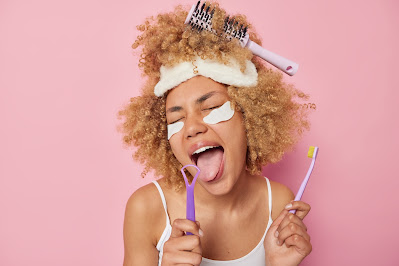
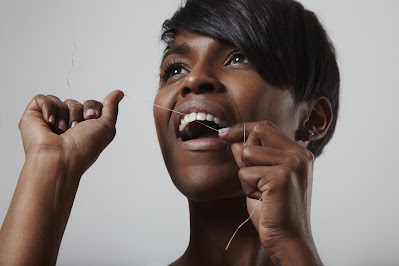
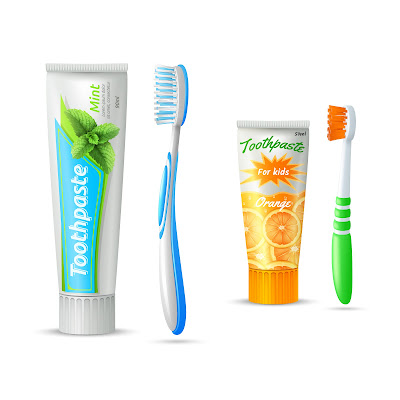

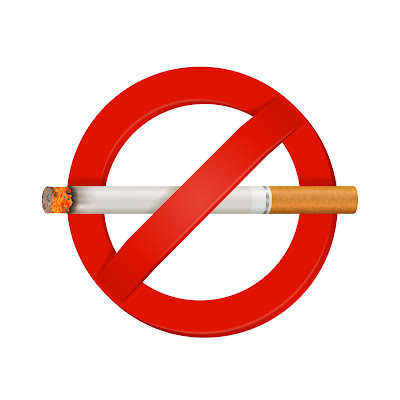


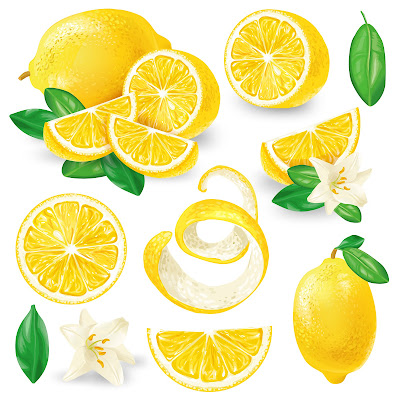





No comments:
Post a Comment